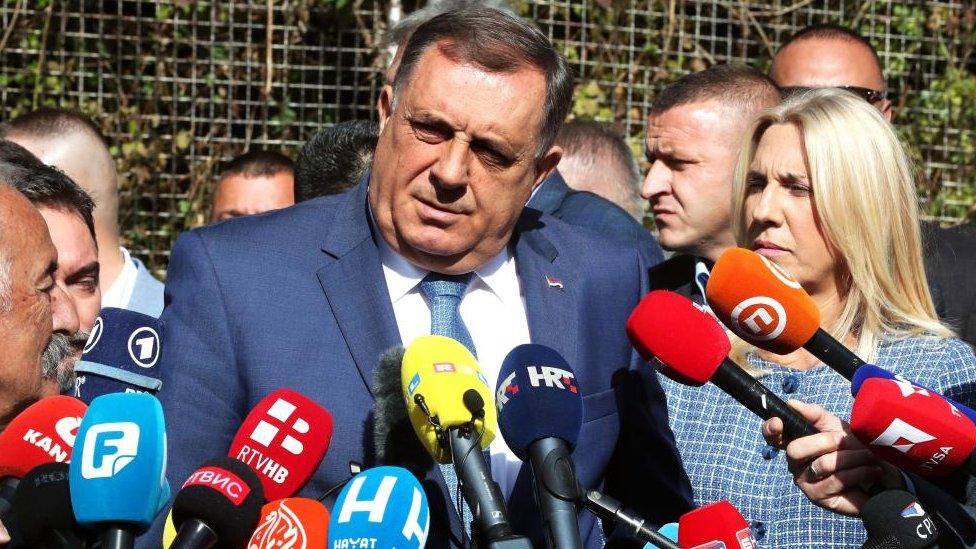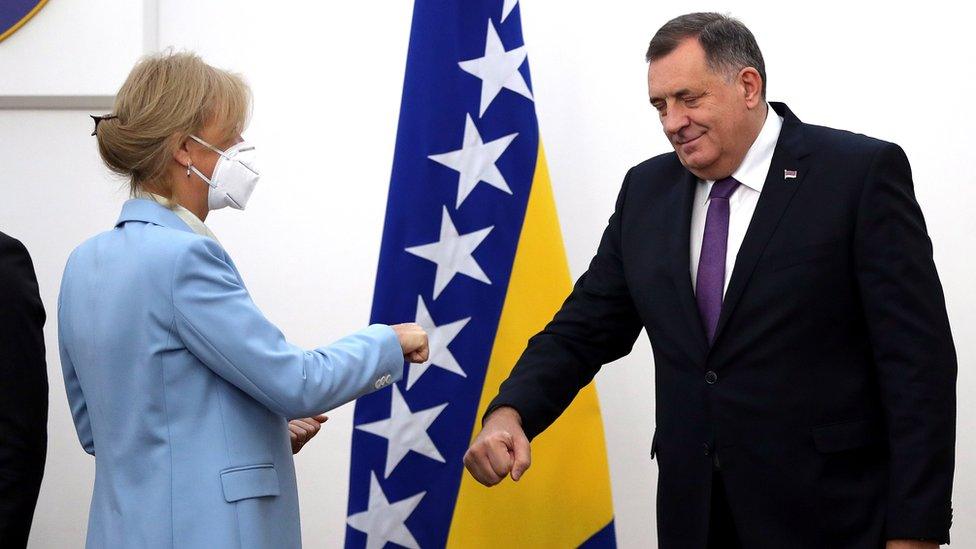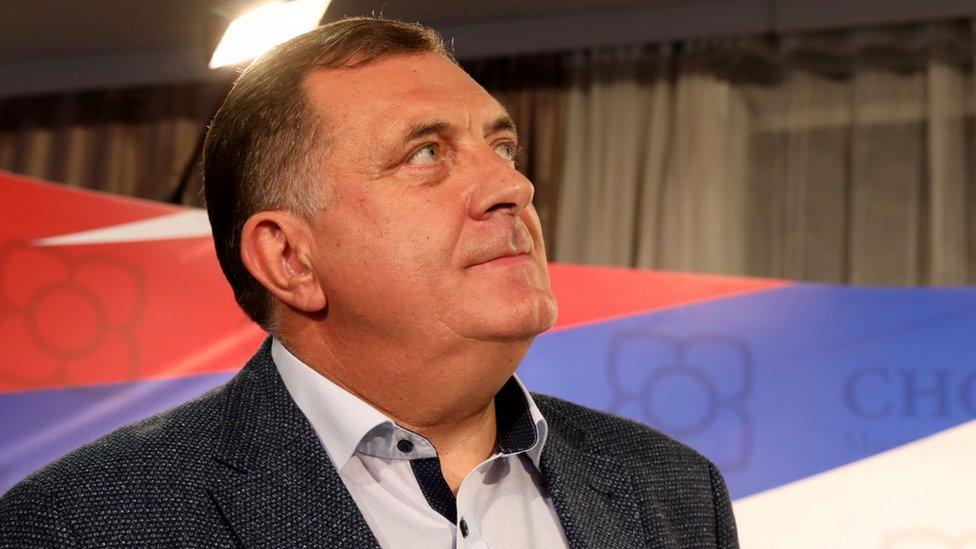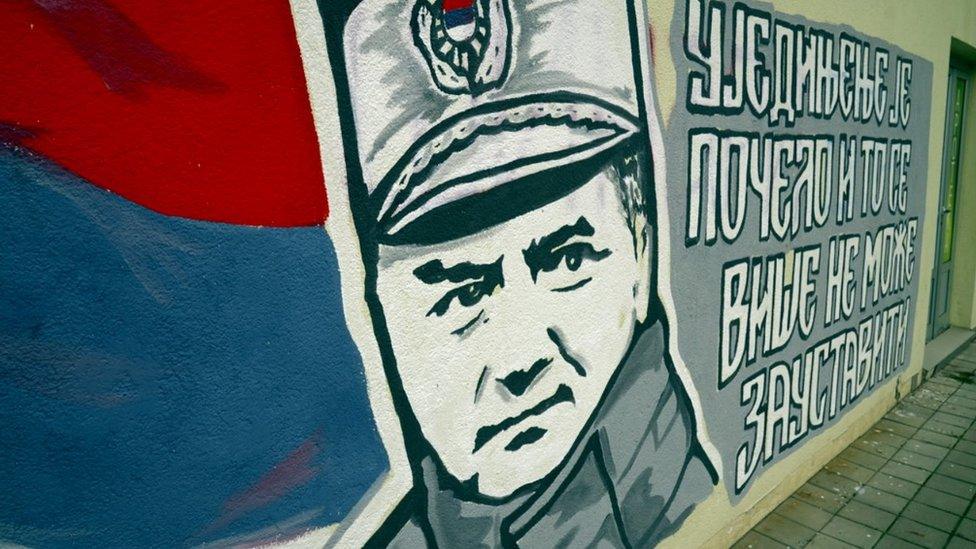Bosnian Serb leader Dodik faces trial for defying international envoy Schmidt
- Published

If convicted, Milorad Dodik could face imprisonment and a ban from politics
Bosnian-Serb nationalist leader Milorad Dodik appeared in court on Wednesday accused of refusing to recognise rulings by the international envoy overseeing peace in Bosnia.
Mr Dodik, who is president of Bosnia-Herzegovina's majority-Serb area, rejects Christian Schmidt's authority.
The hearing was then postponed for three days as Mr Dodik sought to move the trial from the capital Sarajevo.
He said the process was political and Mr Schmidt was an unelected foreigner.
The Bosnian-Serb leader has repeatedly threatened to secede, and if found guilty in this unprecedented trial, he could face up to five years in jail, as well as a ban from politics.
The trial is the culmination of a battle of wills that started when Christian Schmidt became international High Representative for Bosnia and Herzegovina two years ago.
Under the US-brokered Dayton deal that ended the Bosnian war in the 1990s, the international envoy can cancel laws or dismiss officials who threaten the peace.
More than 100,000 people died during the 1992-95 civil war. Afterwards, Bosnia was split into two semi-autonomous regions, the majority-Serb Republika Srpska and the Bosniak-Croat Federation.
Mr Schmidt's predecessor, Valentin Inzko, only deployed his extensive executive powers once, right at the end of his 12 years in office. But the current envoy has been keen to impose his authority from the start - and Milorad Dodik has been equally keen to challenge him.
The 64-year-old Bosnian-Serb leader has introduced a series of laws which have attempted to delegitimise Bosnia's national institutions in Republika Srpska. Targets have included the tax authorities, courts and state-owned property.
He has also barred Mr Schmidt from entering the region, even though the envoy has since visited the majority-Serb territory.
It is tempting to see this as a prelude to Republika Srpska's secession - and indeed Milorad Dodik regularly suggests he could declare the region's independence.
At the weekend, he told Serbian TV that if Donald Trump was re-elected as US president next year, he would not hesitate to do so. During Joe Biden's presidency, the US has imposed sanctions on him for threatening to pull out of major Bosnian joint institutions, and Mr Dodik has expressed hopes that Mr Trump will return to power.
But he has no international backing for independence, not even from neighbouring Serbia.
He is considered an ally of Russia, which along with China, has refused to recognise Christian Schmidt as international envoy.
Mr Schmidt has warned that since Russia launched its full-scale war in Ukraine, the Western Balkans have become a "potential area for Russian intervention". However, he believes the Bosnian-Serb leader has very little scope to "do something strategic".
"The only thing he can do is cause problems, whenever they want it in Moscow," he told an Austrian newspaper recently.
Many suspect Milorad Dodik's true motivation is to maintain a sense of crisis within Republika Srpska and extend his long run in power by exploiting voters' fears.
Related topics
- Published3 November 2021

- Published8 October 2018

- Published9 February 2022
